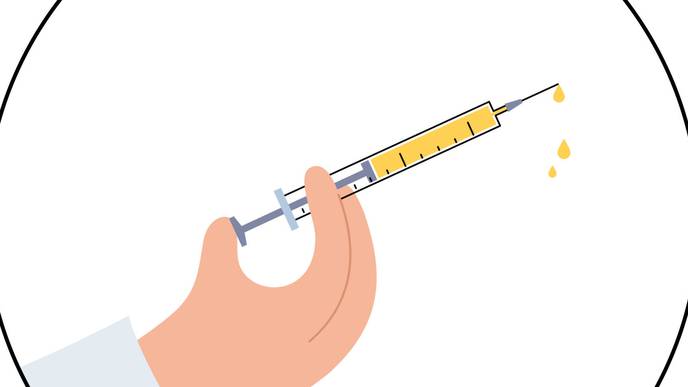Families of Facial Transplant Donors – What Do They Go Through?

02/08/2023
Newswise — February 6, 2023 – At a time of devastating grief, family members of facial transplant donors face a range of difficult challenges – from the unexpected donation request, to unique issues related to the donor's identity, to an onslaught of media attention, reports a study in The Journal of Craniofacial Surgery. The journal, under the guidance of Editor-in-Chief Mutaz B. Habal, MD, is published in the Lippincott portfolio by Wolters Kluwer.
Anthony Verfaillie, MD, Kim De Corte, PhD, and colleagues of University Hospital Ghent, Belgium, report an "interpretive phenomenological analysis" of the experience of family members of the deceased tissue donor for Belgium's first facial transplant. "The findings of our study help to better support donor families through the facial donation process and to improve facial transplantation procedures," the authors write.
Analysis identifies key themes in experiences of facial transplant donors' families
To gain insights into how family members are affected by the complex process of facial transplantation, the researchers interviewed the parents and a sibling of the deceased facial transplant donor. Analysis of the interviews identified six key themes:
- Contrasts between facial and organ transplants. While at first they were surprised by the donation request, family members came to believe that facial transplantation was "equal" to other more common types of organ transplants. However, there were unique considerations related to the perceptibility of the face and its importance as an aspect of personal identity. The family felt some pressure in the decision process, reflecting the perceived medical and scientific importance of the facial transplant.
- Consenting to facial donation. The family members "were on the same page" regarding the decision to donate, influenced by their values of social engagement and altruism. They felt that the transplant would not only enable the donor to help others after death, but would also allow some part of their loved to live on.
- Expectations toward the transplant recipient. Family members had varying feelings about the facial transplant recipient. They expressed a wish to see the results of the transplant – which they knew they could not do, due to legal/confidentiality issues. At the same time, they were also apprehensive about the prospect of recognizing their loved one's face on the recipient, even though they knew that wasn't possible.
- Feelings toward restoration of the donor's face. The family felt it was very important to be able to view the body of the deceased. This required restoration in the form of a manually fabricated silicon mask – which meant that the body couldn't be touched and "did not feel completely genuine." Family members also had to deal with some "bothersome" questions from some social contacts.
- Relationship with the medical team. Family members felt well-informed by the medical team and appreciated the "open, warm, humane, and respectful" relationship with them. However, the family also felt conflicting emotions related to a broadcast report about the facial transplant – which they did not know about in advance, and which revealed some new information about the surgical procedure.
- Media attention. The family "did not feel completely prepared" for media attention to the facial transplant procedure. A news leak of the planned procedure was an "unpleasant aspect" of the donation process. Family members felt they could have been "better informed, prepared, and guided" regarding the media attention and exposure.
The study is the first to focus on the experiences of family members going through the facial transplantation process. The identified themes raise awareness of what's similar and what's different in comparing facial transplantation with more common organ transplants. Consistent with previous studies of the families of deceased organ donors, Drs. Verfaillie and De Corte and colleagues write: "The donation process had a positive influence on personal grief and on the experienced powerlessness of the family members, providing a supportive or comforting feeling."
Wolters Kluwer provides trusted clinical technology and evidence-based solutions that engage clinicians, patients, researchers and students in effective decision-making and outcomes across healthcare. We support clinical effectiveness, learning and research, clinical surveillance and compliance, as well as data solutions. For more information about our solutions, visit https://www.wolterskluwer.com/en/health and follow us on LinkedIn and Twitter @WKHealth.
###
About The Journal of Craniofacial Surgery
The Journal of Craniofacial Surgery serves as a forum of communication for all those involved in craniofacial and maxillofacial surgery. Coverage ranges from practical aspects of craniofacial surgery to the basic science that underlies surgical practice. Affiliates include 14 major specialty societies around the world, including the American Association of Pediatric Plastic Surgeons, the American Academy of Pediatrics Section of Pediatric Plastic Surgery, the American Society of Craniofacial Surgeons, the American Society of Maxillofacial Surgeons, the Argentine Society of Plastic Surgery Section of Pediatric Plastic Surgery, the Asian Pacific Craniofacial Association, the Association of Military Plastic Surgeons of the U.S., the Brazilian Society of Craniofacial Surgeons, the European Society of Craniofacial Surgery, the International Society of Craniofacial Surgery, the Japanese Society of Craniofacial Surgery, the Korean Society of Craniofacial Surgery, the Thai Cleft and Craniofacial Association, and the World Craniofacial Foundation.
About Wolters Kluwer
Wolters Kluwer (WKL) is a global leader in professional information, software solutions, and services for the healthcare; tax and accounting; governance, risk and compliance; and legal and regulatory sectors. We help our customers make critical decisions every day by providing expert solutions that combine deep domain knowledge with specialized technology and services.
Wolters Kluwer reported 2021 annual revenues of €4.8 billion. The group serves customers in over 180 countries, maintains operations in over 40 countries, and employs approximately 20,000 people worldwide. The company is headquartered in Alphen aan den Rijn, the Netherlands.
For more information, visit www.wolterskluwer.com, follow us on LinkedIn, Twitter, Facebook, and YouTube.

Facebook Comments